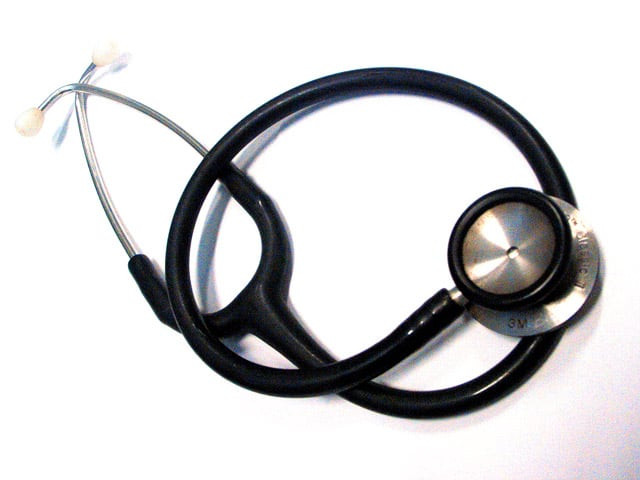Expert talk: Liaison between pathology and gynaecology stressed
Doctors highlight factors that attribute to incorrect diagnosis of a disease.

The pathology department needs to develop a strong liaison with other departments in a hospital, especially gynaecology, to assist doctors in diagnosing and treating diseases more effectively.
This was the theme of a discussion between health experts at a conference “GynePathology” held on Friday at the Maternal and Child Health Centre auditorium of Pakistan Institute of Medical Sciences (Pims).
The talk aimed to highlight the importance of cytology – the study of cellular disease – and provide a platform to both gynaecologists and pathologists to have a better understanding of each others’ fields.
One expert at the event observed a lack of communication and coordination between various departments in the health system leading to complications in the results of biopsies of patients.
Talking to The Express Tribune, Professor Anwarul Haque, head of Pathology Department at Pims, said there are many gynaecologists who do not know how to take, carry and preserve specimens of a patient for a medical examination.
Haque was of the view that sometimes gynaecologists take a specimen from an organ and disperse it between various options, instead of sending them to one laboratory. This, according to the surgeon, results in confusion and incorrect diagnoses of diseases.
“In Pakistan, surgeons do not consult pathologists while treating their patients, which leads to a lack of understanding of their patient’s diseases at the cellular level,” he said.
Another aspect hindering proper diagnosis is lack of proper medical records of patients, including a record of all their previous treatments and biopsies.
“By law, it is mandatory to keep a record, but hospitals do not have a proper administration system,” he said.
During the conference, various female cancers including cervical, uterine, endometrial, and ovarian, and their infectious, neo-plastic and hormonal dimensions were discussed. The participants talked about how to carry a specimen for a medical test, which is important for getting an accurate result.
Dr Syeda Batool said that incorrect labelling on a bottle carrying specimen creates a lot of trouble for a patient.
Talking about female cancers, she said cervical cancer is common among females in Pakistan but there is no proper system for its screening.
A Pap smear test (a procedure for testing cervical cancer in women) is essential for all married women above 25 years of age and should be done after every three years, she said.
She said sexually transmitted diseases (STDs) are also common among married women, but most of them do not get it properly treated or know how to prevent against them.
“For STDs, husbands should also be treated but due to social taboos and lack of information they are reluctant to get its treatment,” she said.
Published in The Express Tribune, April 24th, 2011.



1724319076-0/Untitled-design-(5)1724319076-0-208x130.webp)















COMMENTS
Comments are moderated and generally will be posted if they are on-topic and not abusive.
For more information, please see our Comments FAQ